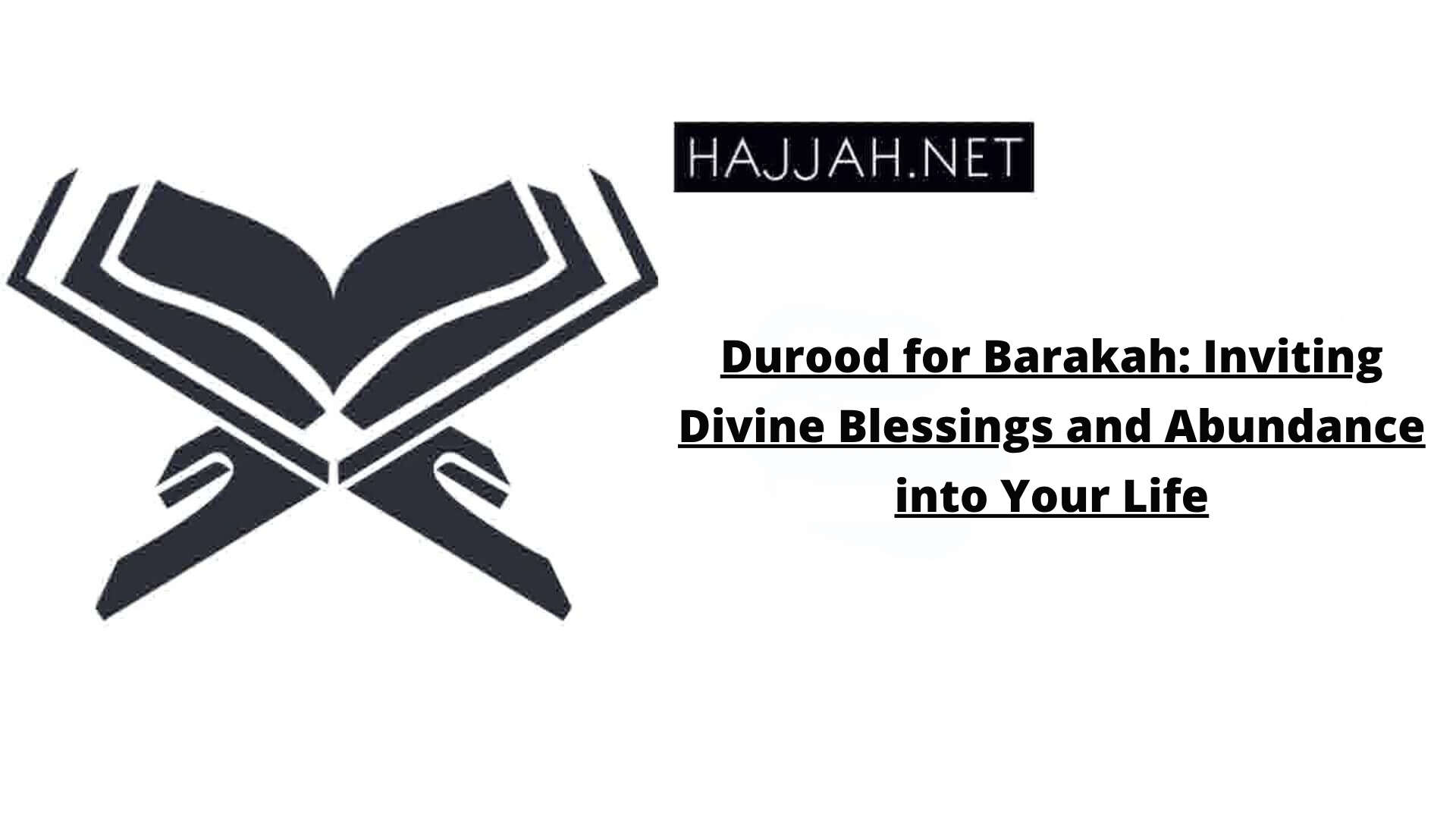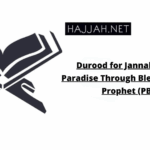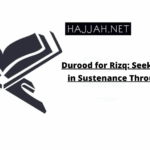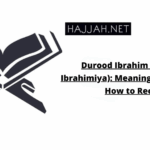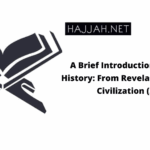In the Islamic worldview, Barakah is a profound concept signifying divine blessings, an increase in goodness, abundance, and the infusion of divine favor into various aspects of life. It’s not merely about quantity, but the quality, sufficiency, and positive spiritual impact of what Allah SWT (God) bestows upon His servants. Muslims constantly seek Barakah in their time, wealth, family, health, and efforts. One of the most cherished and potent acts of devotion believed to attract and amplify Barakah is the recitation of Durood (or Salawat) – sending peace, blessings, honor, and mercy upon Prophet Muhammad (peace and blessings be upon him).
This article explores the Islamic understanding of how this beautiful act of sending Salawat can be a significant means of inviting Barakah into a believer’s life.
Understanding Barakah in Islam
Barakah is a subtle yet powerful divine gift. It can mean:
Also Read
- Increase in Goodness: Making a little go a long way, feeling satisfaction with what one has.
- Abundance: Not just material wealth, but also abundance in time, knowledge, and positive outcomes.
- Divine Favor & Grace: The presence of Allah’s special care and assistance in one’s affairs.
- Continuity of Good: Ensuring that blessings are lasting and beneficial.
Barakah is solely from Allah and is bestowed upon whom He wills, often in response to piety, gratitude, and sincere acts of worship.
The Connection: How Durood (Salawat) Invites Barakah
Sending Salawat upon the Prophet Muhammad (PBUH) is intrinsically linked to receiving Allah’s blessings, which is the essence of Barakah. Here’s how:
-
Fulfilling Allah’s Command and Seeking His Pleasure: Allah SWT explicitly commands the believers to send Salawat upon the Prophet (PBUH) in the Quran (Surah Al-Ahzab, 33:56). Engaging in an act that fulfills a divine command and is beloved by Allah naturally invites His pleasure and, consequently, His Barakah upon the supplicant. When Allah is pleased with His servant, His blessings flow.
-
Receiving Allah’s Blessings (Salawat) Tenfold: This is a cornerstone of the virtue of Durood. The Prophet Muhammad (PBUH) said: “Whoever sends blessings upon me once, Allah will send blessings upon him ten times.” (Sahih Muslim) When Allah sends His “Salawat” upon a servant, it encompasses His mercy, His praise of that servant among the angels, and the showering of His blessings upon them. This direct multiplication of divine blessings is a clear path to attaining Barakah.
-
Angels Supplicate for the Reciter: The angels also send blessings upon those who send Salawat on the Prophet (PBUH). The Du’as of these pure beings are a powerful source of Barakah and divine assistance for the believer.
-
A Key to the Acceptance of All Du’as: It is a highly recommended etiquette in Islam to begin and conclude personal Du’as (supplications) with praise for Allah and Salawat upon the Prophet (PBUH). Scholars emphasize that a Du’a framed by Salawat is more likely to be accepted. If one makes Du’a specifically for Barakah in their Rizq (sustenance), time, family, or any other affair, and includes sincere Salawat, the likelihood of that Du’a being answered favorably increases.
-
Alleviation of Worries and Forgiveness of Sins: The famous Hadith of Ubayy ibn Ka’b (may Allah be pleased with him), where he considered dedicating all his Du’a time to sending Salawat, resulted in the Prophet (PBUH) telling him: “Then your worries will be taken care of, and your sins will be forgiven.” (Tirmidhi – Graded Hasan). When worries (which can hinder productivity and peace) are removed and sins (which can be a barrier to blessings) are forgiven, the path for Barakah to enter one’s life becomes clearer and wider.
-
Increased Love for the Prophet Muhammad (PBUH): Frequent recitation of Durood naturally fosters and deepens the love and reverence for Prophet Muhammad (PBUH) in the heart of a believer. This love is a sign of strong Iman (faith), and strong faith is a foundation for receiving Allah’s continuous blessings and Barakah.
-
Purification of the Soul and Spiritual Growth: Like other forms of Dhikr (remembrance of Allah), Salawat purifies the heart, elevates the spiritual state, and brings the servant closer to Allah. A heart that is pure and close to its Lord is more receptive and deserving of His divine Barakah in all its affairs.
Areas Where Barakah Through Durood May Manifest
The Barakah sought through Durood is comprehensive and can touch various aspects of life:
- Barakah in Rizq (Sustenance): This doesn’t just mean an increase in the quantity of wealth, but also that the existing wealth feels sufficient, is used for good, is protected from loss, and brings genuine benefit and contentment.
- Barakah in Time: Feeling that one’s time is productive, blessed, and used wisely, allowing for the accomplishment of many good deeds.
- Barakah in Family and Relationships: Experiencing harmony, love, mutual respect, and righteous offspring.
- Barakah in Knowledge and Efforts: Gaining beneficial understanding, finding ease in learning, and seeing fruitful and blessed outcomes from one’s work and endeavors.
- Barakah in Health: Enjoying good physical and spiritual well-being.
Practical Steps to Seek Barakah Through Durood
To invite Barakah into your life through the beautiful act of Durood:
- Sincerity (Ikhlas): Recite Durood with a pure intention, solely for the pleasure of Allah and out of love and respect for Prophet Muhammad (PBUH).
- Frequency and Consistency: Make sending Salawat a regular and frequent habit throughout your day and night, not just an occasional act.
- Understanding and Reflection: While reciting, ponder the high status of the Prophet (PBUH) and the meaning of the blessings you are sending.
- Use Authentic Forms: While many forms of Durood exist, prioritize those taught in the Quran and authentic Sunnah, with Durood Ibrahim (recited in Salah) being the most complete.
- Combine with Other Righteous Deeds: Barakah is attracted by an overall lifestyle of piety. Complement your Durood with regular prayer, charity, gratitude, seeking forgiveness, and upholding good character.
Conclusion
Sending Durood (Salawat) upon Prophet Muhammad (peace and blessings be upon him) is far more than a ritualistic phrase; it is a profound act of worship deeply entwined with attracting Barakah – divine blessings, goodness, and abundance – from Allah SWT. It operates by invoking Allah’s direct mercy and tenfold blessings upon the reciter, purifying the soul, enhancing the acceptance of all supplications (including those for Barakah), and alleviating the worries that can obstruct life’s blessings. By making frequent, sincere, and mindful recitation of Durood a cornerstone of their devotional life, Muslims can hope to experience an increase in true, beneficial Barakah in their sustenance, time, family, and all their righteous endeavors, by the infinite grace of Allah.

